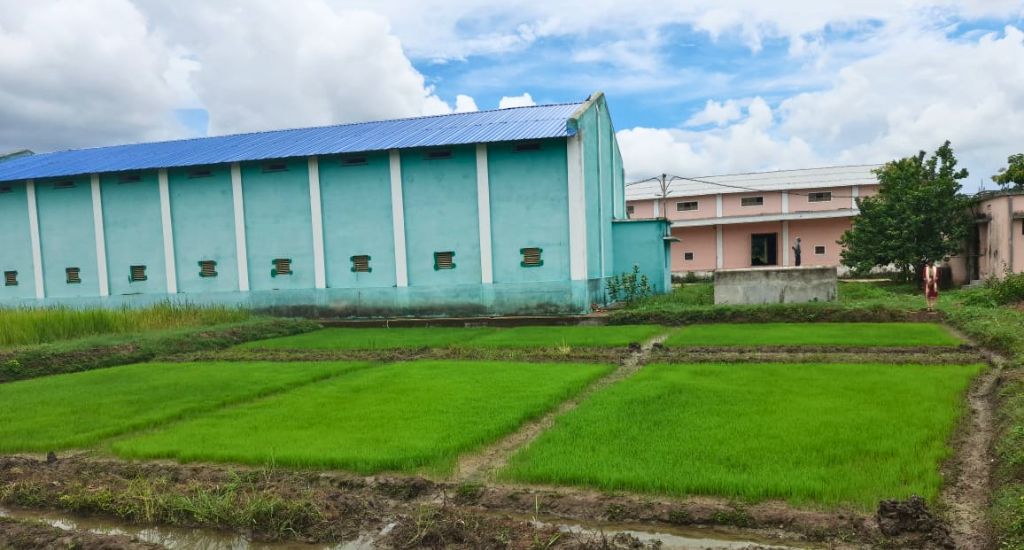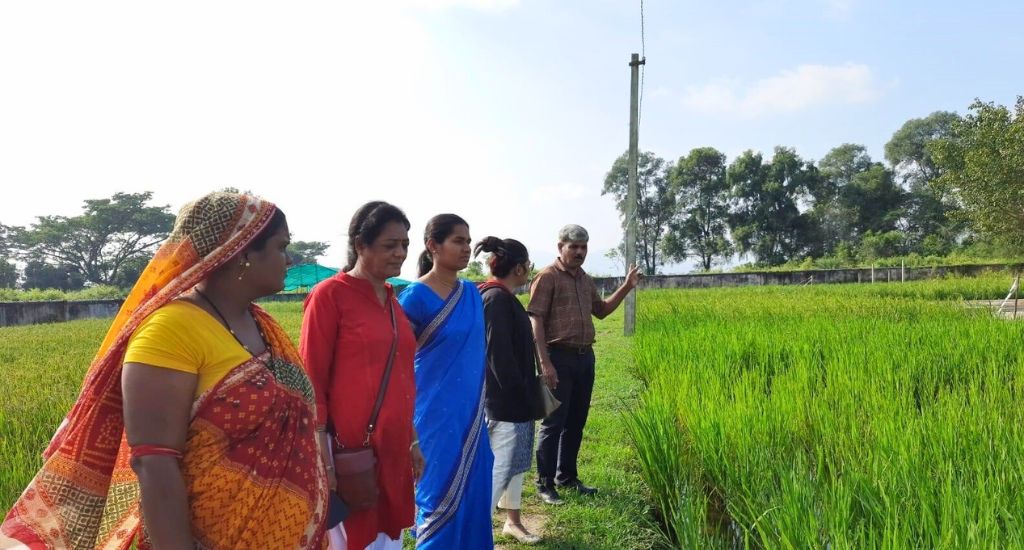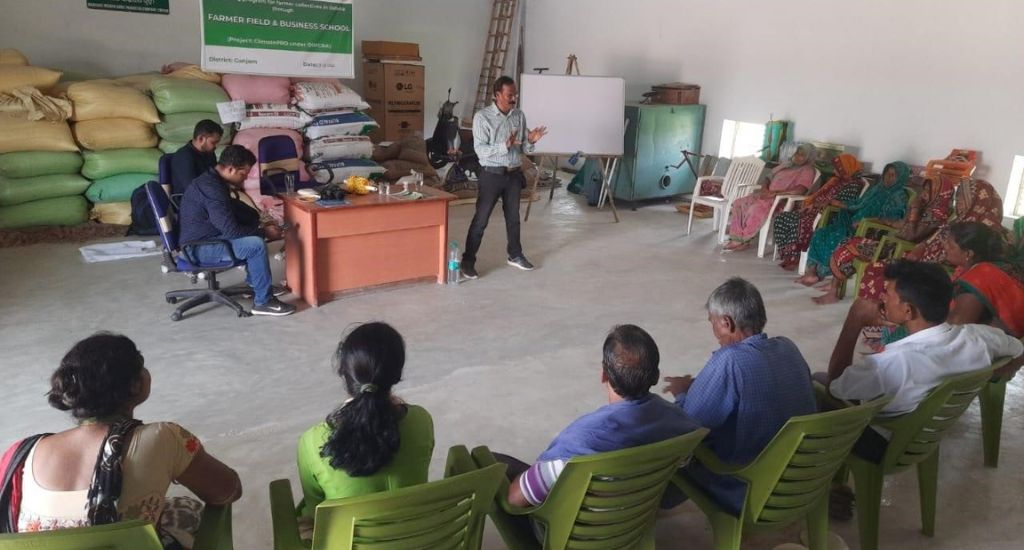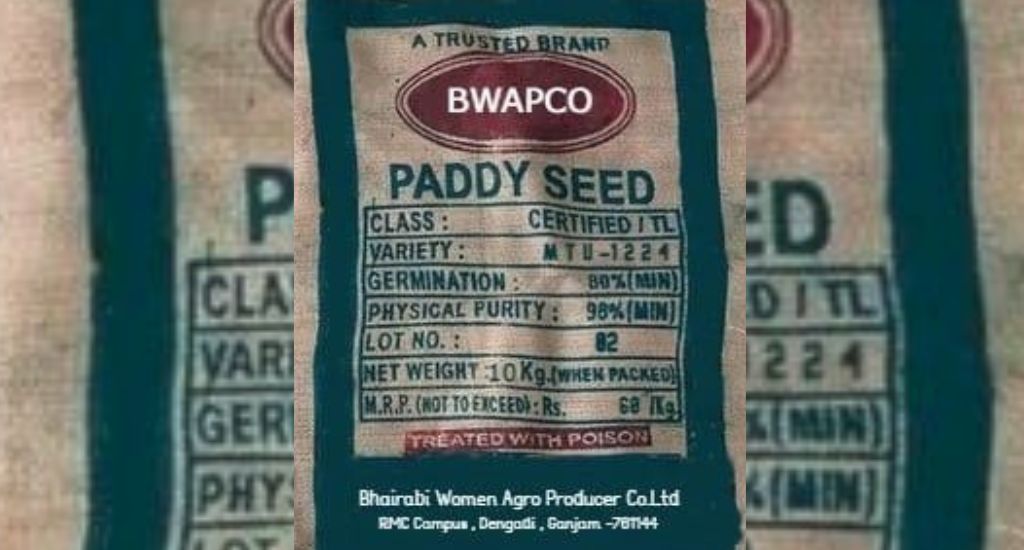
Women reap success with rice seed business in Odisha
Women farmers in Ganjam district of Odisha turn entrepreneurs to fulfil local demand for good quality certified paddy seed.

Women farmers in Ganjam district of Odisha turn entrepreneurs to fulfil local demand for good quality certified paddy seed.
The agrarian economy of Odisha largely hinges upon rice, accounting for nearly a quarter of the total agricultural output of the state, besides generating employment for small and marginal landholders. However, though the state contributes a significant portion of rice to the national pool, its productivity doesn’t compare well with other agriculturally progressive states such as Punjab, Tamil Nadu and Telangana.
Poor access to quality seeds and environment-appropriate varieties is often cited as a major challenge in optimising rice productivity. According to a research conducted by the International Rice Research Institute (IRRI), in the wet season, about 65 percent of farmers use farm-saved seeds, the quality of which remains a concern.
Owing to several challenges, the state-run seed corporations are not able to fulfil the entire seed requirement. The other farmer-led seed amplification channels and community-based seed networks remain under-explored.
Now, a new initiative by IRRI involving women farmers of a producer company is proving to be effective in meeting farmers’ paddy seed needs.
Ganjam was selected as the intervention district by IRRI after analysing various factors, including productivity constraints. Rice is grown in about 2.45 lakh hectares in the district, with an average productivity of 2.80 tonnes per hectare.
Also Read: Why this woman in Odisha is called a traditional seed guardian

The top varieties with wider coverage are Swarna, Pooja and Swarna sub-1, but the demand for fine-grained rice is increasing steadily. However, the options for fine-grained varieties are fewer, with older varieties such as BPT 3291 and BPT 5204 of low productivity dominating the scene. Seeds of assured standards are also not readily available for these varieties, giving rise to the need to introduce fine grain varieties of fitting duration.
IRRI, therefore, selected and evaluated the worth and suitability of five new fine-grained and long slender medium-maturity varieties. It conducted these evaluations in close coordination with women farmers, officials, rice millers and local traders. They found MTU 1224 suitable for mass production.
Also known as Maruteru Samba, MTU 1224 was released in 2019 from Regional Agricultural Research Station (RARS) at Maruteru in Andhra Pradesh, and can potentially replace Samba Masuri (BPT 5204) – an older variety in the fine grain segment. With a yielding ability of up to 6.50 tonnes per hectare, and marketable grain shape and better cooking quality, this variety is quickly gaining popularity among farmers. However, since it is a new variety in Odisha, seed amplification and area expansion for this rice have not yet commenced at scale.
IRRI shortlisted functional women farmer producer companies (FPCs) who were interested in seed business to facilitate and scale up local seed production. Bhairabi Women Agro Producer Limited, an all-woman farmer producer company incorporated in 2018, evinced a keen interest in seed business. The collective is managed and governed by small holder women farmers of the district. It has 1,000 members and a paid-up capital of Rs 4.40 lakh. The members are mostly engaged in organic fertiliser production and distribution within Ganjam district and beyond, besides preservation and sale of traditional varieties and landraces.
Also Read: These unschooled Odisha women are running a farm school

IRRI first organised a season-long field and business school for 40 members of Bhairabi FPC, holding practical demonstrations and theory sessions on taking care of the crop at different stages to get quality paddy seeds. Additional training events were organised for the participants to cover vital components of seed production. IRRI also provided periodic field monitoring and quality maintenance support. The training programme also delved into value chains and businesses based on rice byproducts.
Availability of the basic seed is a prerequisite for quality seed production. IRRI helped the FPC get one quintal of breeder seeds from an authorised research institute.
Also, post-production seed certification is important for better marketability of the seeds. IRRI hence guided the farmers on procurement of licences and certifications from the Department of Agriculture and Farmers Empowerment, and Odisha State Seed and Organic Product Certification Agency. Keeping in view the fact that marketing of produced seed determines profitability and business sustainability, it also helped the producers gather relevant market information during the training.
Since Bhairabi FPC is new to the seed business and doesn’t own a processing unit, IRRI facilitated the processing. With a nominal processing fee, about 40 tonnes of raw seeds were processed for packaging. The FPC produced 35 tonnes of certified seeds for sale. It also fulfilled the seed requirement of the member farmers substantially.
The FPC members produced 20 tonnes of certified seeds in 8 hectares, sufficient to plant 500 hectares in the next season. Increasing adoption and geographical expansion of this variety emerged as a significant outcome of this intervention, catalysing thousands of farmers to grow seeds.
Also Read: MGNREGA: Armed with app, Odisha women show the way
The standard seed kit size available in the market weighs 20 kg. Considering the prevalence of marginal farmers with small lands, the FPC has introduced seed packets in 6 kg, 12 kg and 20 kg sizes. It also established a network with 30 input dealers in the district to market the seeds.
About 40 member farmers are now seed champions. The accomplishment is boosting their entrepreneurial ability to expand to other economic activities.

Seed production as a business is a challenging yet remunerative occupation. When undertaken at scale and in an optimised setup, it can result in a benefit-cost ratio of up to 2. The inclusion of this seed entrepreneurship in the women FPC’s business model is certainly an impactful accomplishment.
Given the growing engagement of the members, IRRI, in the coming season, will enable them to take up the seed scaling of multiple varieties and crops – especially in the rabi reason. To further streamline this business process, it will support the FPC in seamless early generation seed procurement, adherence to prescribed quality norms and in exploring the possibility of setting up a seed processing unit.
The idea is to scale up the business volume of the FPC and improve farmers’ access to quality seeds. IRRI will also target other districts to replicate and establish a similar farmer-led seed production business model.
Also Read: Odisha women fight malnutrition with backyard gardens
The lead image at the top shows a nursery bed for producing paddy seeds (Photo courtesy IRRI)
Mosharaf Hossain is the lead specialist and Swati Nayak is a scientist in seed system and product management, IRRI, South Asia. Girija Prasad Swain is a research officer at IRRI, Odisha.